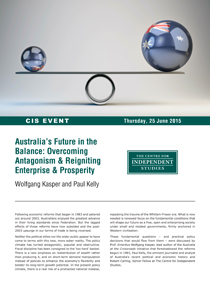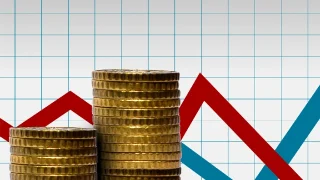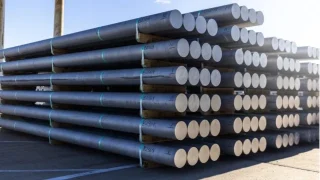
Following economic reforms that began in 1983 and petered out around 2003, Australians enjoyed the greatest advance in their living standards since Federation. But the lagged effects of those reforms have now subsided and the post-2003 upsurge in our terms of trade is being reversed.
Neither the political elites nor the wider public appear to have come to terms with this new, more sober reality. The policy climate has turned antagonistic, populist and obstructive. Fiscal discipline has been consigned to the ‘too hard’ basket. There is a new emphasis on redistribution of wealth rather than producing it, and on short-term demand manipulation instead of policies to enhance the economy’s flexibility and bolster its long-term growth potential. In the present policy climate, there is a real risk of a protracted national malaise, repeating the trauma of the Whitlam-Fraser era. What is now needed is renewed focus on the fundamental conditions that will shape our future as a free, open and enterprising society under small and modest governments, firmly anchored in Western civilisation.
These fundamental questions – and practical policy decisions that would flow from them – will be discussed by Prof. Emeritus Wolfgang Kasper, lead author of the Australia at the Crossroads initiative that foreshadowed the reforms begun in 1983, Paul Kelly, the eminent journalist and analyst of Australia’s recent political and economic history and Robert Carling, Senior Fellow at The Centre for Independent Studies.











